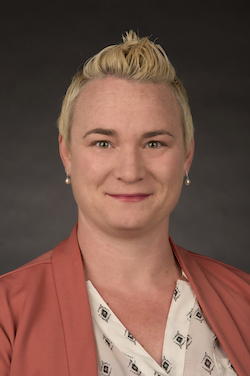Idaho State University’s TRiO office receives new grant for Educational Opportunity Center for non-traditional students
November 10, 2016
POCATELLO – About 1,000 adults in five counties across south-central Idaho will be given access to further “access and opportunity to higher education” by Idaho State University’s new five-year, $1.2 million TRiO grant for an Educational Opportunity Center (EOC).
 The EOC grant will serve non-traditional students, or adult learners, across the counties of Cassia, Twin Falls, Minidoka, Gooding and Jerome.
The EOC grant will serve non-traditional students, or adult learners, across the counties of Cassia, Twin Falls, Minidoka, Gooding and Jerome.
ISU TRiO executive director Sari Byerly said having a TRiO Educational Opportunity Center in Southcentral Idaho will be a huge benefit to its residents.
“We’re here to provide access and opportunity to education,” Byerly said.
A common problem for non-traditional students, especially those who have not attended college before, is the fact that so much of the application process takes place online.
“We sling words like FAFSA around all the time, but not everyone knows what that means or to go online to process an admissions application, for example,” Byerly said. “Everything in higher education assumes that people are traditional and have learned computer skills, but that’s not always the case.”
Byerly noted that many of the logistics of higher education make sense to those who are in it, but can be daunting to those who have never had to navigate it.
“Someone could come to our office who might not entirely know how to navigate all of the things on the Internet,” Byerly said. “The fact that most campuses have gone entirely paperless can be a huge divide, but we help them bridge that.”
Another primary goal of the EOC will be to assist participants who do not have a GED or secondary school diploma obtain that qualification.
“My estimate is that 100 out of the 1,000 participants will come to us without that credential,” Byerly said. “We will not only help participants obtain that credential, but assist them with college admissions applications, financial aid applications, and post-secondary enrollment.”
Ideally, Byerly expects 65 percent of participants to immediately move on to post-secondary education, while the other 35 percent might need extra assistance before enrolling.
This applies to applicants who do not yet have a GED as well as those who attended college in the past and have fees to pay that they might not have known about.
TRiO will then work with these participants as long as necessary to get them ready to enroll.
“If needed, we will work with these individuals for two, three, maybe even four years depending on what level they come to us with,” Byerly said.
This grant will be especially beneficial for this area because of the five counties it will reach, 86 percent of the population has not earned a bachelor’s degree.
Since the EOC is a new program in Southcentral Idaho, the TRiO office is currently collaborating with the College of Southern Idaho to create space for the program’s home base.
TRiO advisors will work from the EOC home base and collaborate with various departments and offices.
While about 10 percent of their time will be spent documenting their services, the advisors’ primarily goal is to get involved with the community to reach as many people as possible.
“Our advisors will probably only work out of the home base for four out of five days of the week,” Byerly said. “The rest of their time will be spent working with places like the department of labor to conduct workshops to directly reach out to unemployed people.”
Byerly said TRiO advisors will also reach out to potential participants by working closely with the CSI refugee center, drug court, Community Council of Idaho, and migrant services.
“Since this grant will be affecting so many people, it really is all about reaching out to front-end offices and health and welfare offices, who in turn give our information to individuals and families,” Byerly said.
Of the 1,000 participants that will be involved in EOC, two-thirds will be both first-generation students and limited income, while one-third can be one or the other.
Byerly said that she is very excited about this grant because it is the first grant ISU TRiO has received that caters specifically to adult learners at a pre-college level.
“When I started as the TRiO director four and a half years ago, I kept thinking we needed more grants, and that we needed to reach out to more communities and get more participants,” Byerly said. “That’s one of the main things I’ve been working on for the past four and a half years, and I think this grant is a great step in that direction.”
The Educational Opportunity Grant is the third major grant the TRiO office has received this year.
For information, contact Byerly at (208) 282-3242 or byersari@isu.edu.
